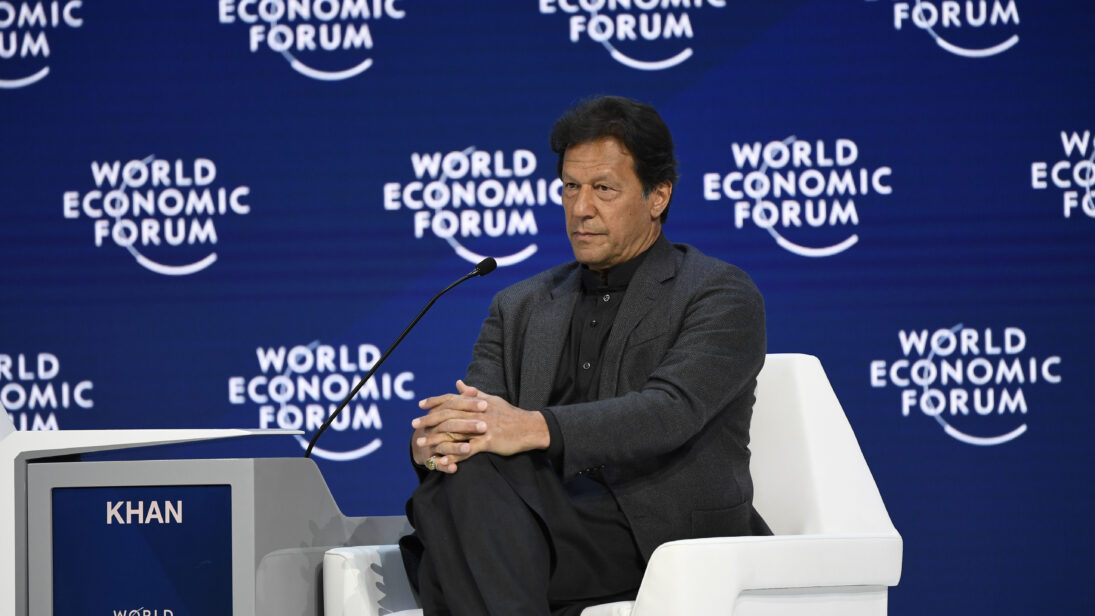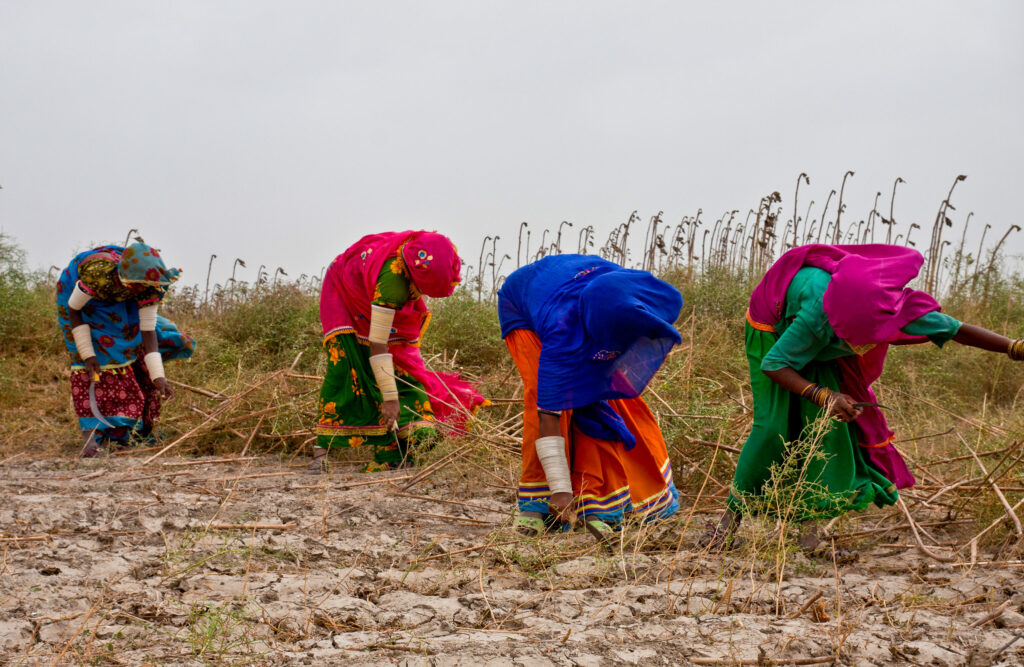
On January 14, Pakistan launched its first-ever comprehensive National Security Policy (NSP). The new policy quickly generated public debate, from military and policy circles to academics and analysts. The document is unique in its citizen-centric approach and its exploration of the links between traditional, economic, and human security.
The NSP highlights the continuity in Islamabad’s intent to place geoeconomics—rather than geopolitics—at the core of Pakistan’s national security. While the policy’s recognition of economic security as a lynchpin to national security is noteworthy, the nearly 50-page public version of the policy (the full-version of 110 pages remains classified) lacks the delineated actionable goals to achieve it. Many analysts, and the document itself, note that the policy intends to convey a “directional tone, providing strategic guidance” for Pakistan’s national security outlook.
Even if the NSP is a guide that provides a means and not an end, some policies appear contradictory to one another. This is perhaps most visible in the NSP’s focus on climate change as a pressing threat, while simultaneously emphasizing regional connectivity projects—such as the Turkmenistan–Afghanistan–Pakistan–India Pipeline (TAPI) and those under China-Pakistan Economic Corridor (CPEC)—centered on non-renewable energy sources. Further, while the NSP focuses on regional relationships for supporting its geoeconomics goals, there must be a recognition that these policies will need to follow domestic economic adjustments as well.
Policy Takeaways
Formally placing economic security at the core of national security is a significant development because it helps the country achieve the economic stability it has long been aiming to secure. The policy envisions lending Pakistan as an economic base for the world. Using Pakistan’s location for trade and connectivity, leadership intends to pursue equitable development initiatives and leverage Pakistan as a reliable trade partner. It is worth noting that the NSP has expanded on a vision of regional connectivity which is more nuanced than trade partnership. Not only is Islamabad hoping to build trade links—but it also seeks greater regional integration through transit routes, cross-broader energy networks, and collective climate action.
Previously, the Khan administration has been accused of policy inconsistencies, such as the frequent reshuffling of cabinets and backtracking on conducting trade with India. The focus on geoeconomics in the National Security Policy suggests that the government wants to follow through on their promises with concrete action in this instance.
If anything, the NSP signifies consistency in the policy thinking of Pakistan. The shift from geopolitics to geoeconomics was first introduced at the Islamabad Security Dialogue last year by the civil-military leadership. Previously, the Khan administration has been accused of policy inconsistencies, such as the frequent reshuffling of cabinets and backtracking on conducting trade with India. The focus on geoeconomics in the National Security Policy suggests that the government wants to follow through on their promises with concrete action in this instance.
Moreover, it is the first time in Pakistan’s recorded history that a national security policy has acknowledged non-traditional security threats on par with the conventional ones. Given the security architecture in South Asia is centered on hard-power threat perceptions and Pakistan’s past strife with its nuclear rival, India, Islamabad has consistently conceptualized security in the form of nuclear and military threats predominantly in the land, air, and sea domains. The non-traditional threats compared to military ones were not previously seen in parity. The NSP, however, acknowledges the role that climate change can play in disrupting domestic livelihoods such as the rapid melting of northern glaciers impact on water resources, the disruption of crop patterns, and increasing food insecurity. The focus is particularly pertinent given the ways the COVID-19 pandemic has impacted the domestic economy and global supply chains.

Islamabad has articulated a need for economic security as a means of addressing the pressing threats of emerging security threats in climate change and cyber. Through building economic interdependency, a global economic footprint, and greater availability of resources, Islamabad believes it can direct capital to both human welfare and hard security initiatives. The NSP has not only legitimated non-traditional threats as “serious” ones but has also broadened the concept of security. For example, the policy is an exception in its recognition of the importance of gender security in Pakistan.
Economic Security and Regional Connectivity Misconceptions
Meanwhile in aiming to guide the strategic and security policy for Pakistan, the different sections in the NSP do not seem to be in the line with one another.
For one, there appears to be more focus on regional economics than the domestic economy. For instance, the policy mentions CPEC as an epitome of the regional connectivity paradigm, describing the project as “providing impetus to Pakistan’s economy with the potential to jump-start domestic growth.” However, it is unclear if CPEC has translated into prosperity and development at home. Local firms in Pakistan have previously raised complaints of losing out on fair opportunities to engage in CPEC-phase-one projects compared to Chinese-state-owned enterprises. It would be more important to gauge if regional connectivity projects bring in skill development, research, and development, ensuring knowledge transfer and technology transfer.
The NSP is also unclear in dictating how the country should achieve economic security at home. While for trade and investment the policy seeks to widen the export basket and expand the industrial base, there is hardly mention of how the country plan to do so. For instance, there is no mention of the sectors or products Pakistan can capitalize on and exercise its competitive advantage. While there is a mention of increasing productivity of agricultural sectors in the document, it is worth noting that trade driven by the agricultural sector may not be sustainable for Pakistan given that climate-change-induced impacts are likely to reduce agricultural productivity. In the human security section, the NSP itself articulates the impact of decreasing availability of farmland and per capita availability of water on the agriculture-based economy. In future years, Pakistan might not be able to leverage its agricultural products in the global market. Apart from specifying sectors to tap investments for, Islamabad must also address the inconsistencies in policies and regulatory measures, such as tax regimes, to attain sustainable economic security.
Similarly, the ongoing connectivity projects negate the NSP’s energy security vision. In the context of sustainable regional connectivity vision, the NSP advances Pakistan’s energy security by reducing energy imports and prioritizes investments in renewable sources instead. On one hand, the policy states, “Pakistan’s share of clean energy should reach sixty percent by 2030.” On the other hand, Pakistan is keen to connect Central Asian states with the South Asian ones, given the energy abundance in Central Asia and the increasing demand in South Asia. Thus, integration projects dependent on non-renewable energy sources, such as the TAPI gas pipeline, come up against the policy.
For the first time in Pakistan, a national security policy debunks the “guns vs. butter” dichotomy and acknowledges human-centric economic development instead. However, this has to be followed with action that justifies the level of resources and budget directed to human development as compared to military spending.
The regional connectivity framework must be cognizant of the climate vulnerabilities of the region. One of the ways to ensure sustainable regional connectivity is to enable partnerships driven by clean energy technologies which may be cleaner, economically viable, and secure. In line with the NSP’s suggestion to “increase share of installed capacity through renewable sources,” Pakistan could focus on investment partnerships around clean energy technologies. The study by World Bank suggests that 30 percent of Pakistan’s electricity generation driven by solar and wind power can produce up to 2400 MW, signaling greater energy security.
A First Step in the Right Direction
The National Security Policy is undoubtedly a milestone for Pakistan. For the first time in Pakistan, a national security policy debunks the “guns vs. butter” dichotomy and acknowledges human-centric economic development instead. However, this has to be followed with action that justifies the level of resources and budget directed to human development as compared to military spending. Pakistan also cannot attain economic security without clear, actionable goals to boost its domestic economy and a deeper understanding of climate realities in the region. While the policy is significant in outlining the much-needed geoeconomics vision, the guidelines to implement it do not seem to be fully comprehended. It is, however, the first step in the right direction.
***
Click here to read this article in Urdu.
Image 1: World Economic Forum via Flickr
Image 2: Asian Development Bank via Flickr


